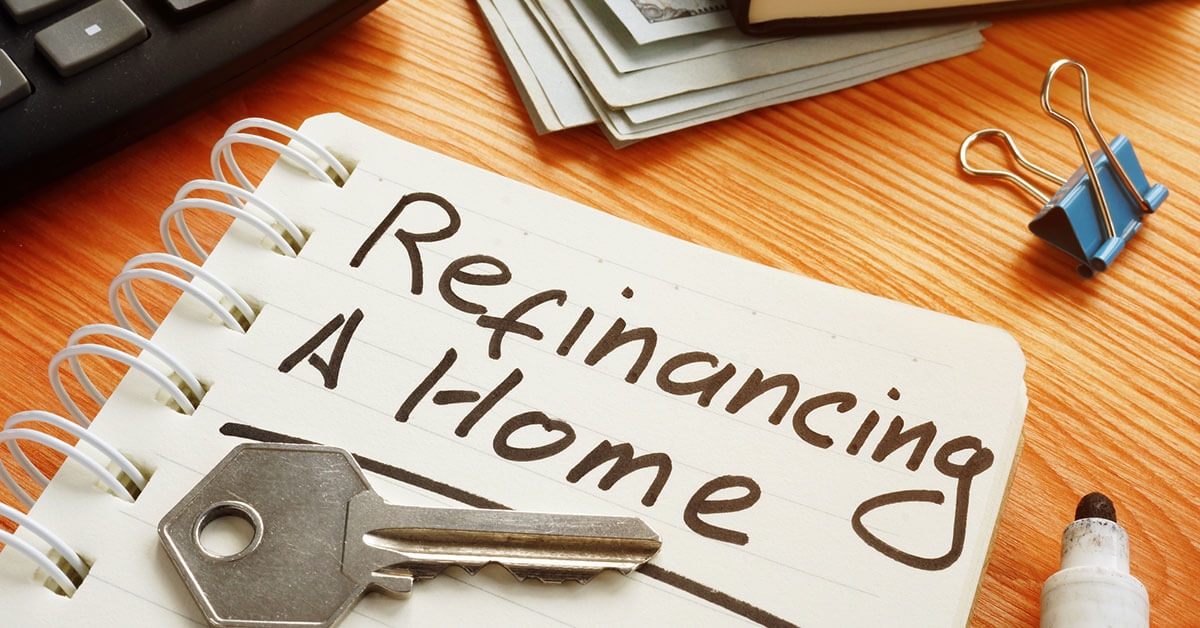
Fannie Mae and Freddie Mac’s New Adverse Market Fee: What It Means for Homeowners and Homebuyers
The historically low-interest rates have created a large uptick in the number of home refinance (refi) applications. This summer, refinances have accounted for more than 60% of mortgage loan applications. However, homeowners who have not yet locked in their refinancing rates may end up paying more than they expected due to the new “adverse market fee” on all refis backed by Fannie Mae and Freddie Mac.
The new fee, which is supposedly driven by market uncertainty, applies only to refinances, not purchase loans. Generally, refinances are less risky for lenders than a new purchase, especially with COVID-19 related restrictions requiring up to date payments on a homeowner’s current mortgage and stricter credit criteria for homeowners to qualify for a refinance.
The new fee has drawn criticism from a group of 20 trade organizations and public interest groups who are calling for the Federal Housing Finance Agency to reverse the fee. They believe it conflicts with the federal government’s attempts to support homeowners and stimulate the economy through relief efforts and low-interest rates.
“This is the absolute wrong policy at the wrong time,” National Association of REALTORS® President Vince Malta said in a statement immediately following the FHFA announcement. “The fee could cost homeowners thousands of dollars, which will destabilize the market and take away opportunity, and directly contradicts the administration’s own directives for federal agencies to do no harm to homeowners during the coronavirus crisis.”
The adverse market fee, which was slated to go into effect on September 1st but delayed to December 1st, was announced by Fannie Mae and Freddie Mac on August 12th. The fee is a 0.5% charge on conventional refinances. Fannie and Freddie are government-sponsored enterprises and are not lenders themselves. Both Fannie and Freddie purchase loans from lenders, package them into government-backed securities, and sell those securities to investors.
The article The Property Line: Don’t Let New Fee Stop You From Refinancing notes that Freddie Mac attributed the fee to “COVID-19 related economic and market uncertainty.” Fannie Mae issued a similar statement without explicitly naming COVID-19.
For homeowners in the midst of a refinance, including cash-out refinances, who have not yet locked in their rates, and for homeowners who are considering refinancing down the line, the adverse market fee means an additional charge for you.
The Mortgage Bankers Association reported that the average amount of a conventional refinance for the first week of August was about $324,000. The adverse market fee for a refinance of that amount would be $1,620. While this fee is technically being charged to the lenders, it is likely that most lenders will pass the fee on to borrowers.
The fee may be passed on to borrowers in a few ways:
- Include the fee in the refinancing closing costs: According to the National Association of REALTORS®, the median home price nationwide as of the second quarter was $291,300. If you apply the fee to a home of this cost, its result would be over $1,100. But as the previous example showed, current refinances are closing around $324,000, resulting in even high costs.
- Increase the loan’s interest rate: The 0.5% fee instituted by Fannie and Freddie would translate into a rate increase of 0.125% according to the Nerd Wallet
Luckily, the adverse market fee does not apply to Fannie Mae and Freddie Mac’s specialty loan refinance programs such as Fannie Mae’s HomeReady refinance program, Freddie Mac’s Home Possible mortgage refinance program and the Enhanced Relief Refinance program.
The adverse market fee does not apply to new purchase loans. And not all homeowners choosing to refinance will be affected by the adverse market fee. The new fee applies only to conventional, conforming mortgages.
Loan types which are exempt from this fee include:
- Government home loans: These are loans backed by the government such as FHA loans, USDA loans, and VA loans.
- Jumbo loans: These loans are used to finance properties that exceed the local conventional loan conforming limit: $510,400 in most counties.
- Single-closing interim construction and permanent financing loans: This is a mortgage for borrowers building new homes and covers the cost of buying the land and all other finances through the construction phase and into the permanent home loan.
While this new fee is certainly unexpected, it does not necessarily negate the monthly savings homeowners stand to gain with a refinance. Moving forward with your refinance to take advantage of low-interest rates may still be the right choice for many homeowners.
Time to Focus on Affordable Housing
Taxes on real estate are not the answer. Sign the petition calling on Congress to address our country’s housing shortage.





